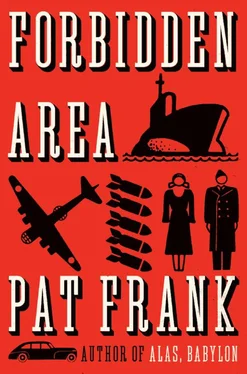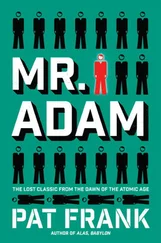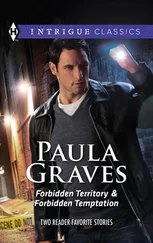This was no ordinary morning.
A stream of civilians, some in flight coveralls, others in bright sports shirts and slacks, invaded the mess, shepherded by Air Police. Twice as many Air Police as usual seemed to be on night duty. Smith knew that the civilians, most of them, were factory pilots and tech reps and slide-rule artists searching for bugs in the B-99. The other civilians would probably be Special Investigations men. Since most of them ordered dinners, he guessed that they had worked through the night, wringing out the 99’s out of sight and hearing, eight or ten miles up. A Colonel Lundstrom, a tall, blond man with the quiet dignity of assured authority, came in at two-thirty with Major Glick, the Chief Security Officer at Hibiscus. Smith had heard that Lundstrom was a wheel in Washington, and, since Lundstrom ate with Glick, it could be assumed that he was a wheel in security. Smith brought sandwiches for Lundstrom and Glick, and hovered about them with freshly made coffee, but he never heard a word of their conversation. One of the posters on the wall behind Lundstrom read, “The Biggest Gap In Security Is An Open Mouth.” It showed a beefy, garrulous officer yakking to a girl in a booth of a cocktail lounge. Lundstrom in no way resembled the officer in the poster.
At four-thirty there was a flap. Brigadier General Conklin, the base commander, came in with two other generals and a pink-cheeked captain, an aide. One of the generals was built like a barrel and was smoking a cigar. Smith recognized this three-star general as the Commander of SAC, by legend a hard character incapable of smiling, and he was not smiling now. The other general had four stars, and Smith knew he must be Keatton, the Air Force Chief-of-Staff. Both generals appeared rested and were cleanly shaven, and Smith guessed that they had been napping on a plane, probably a plush super-Connie with leather lounging chairs, office, and berths, and had shaved before landing. Conklin was unshaven and weary. He had not slept, except to drop his head on his desk for a few minutes when his eyes would no longer remain open, since his two B-99’s of the 519th Wing vanished Monday.
Such heavy brass had never been seen on the graveyard shift before, but Sergeant Ciocci knew what to do, although he was a bit flustered as to whom to address, the base commander or the commander of the whole damn’ Air Force. He compromised by bracing rigidly at attention, and speaking towards a point between them. “Sir, I guess you’ll want to eat in the Sky Room. I’ll have it set up right away, sir.” The Sky Room was a private dining alcove, for chicken colonels and general officers only, partitioned off from the mess hall.
“No, we’ll eat right here,” Keatton said. The generals and the aide sat down around the end of Table No. 2 and ordered; two scrambled, two sunny side up. Smith hurried into the kitchen and brought coffee. They would want coffee while waiting for their eggs and toast. It was a big flap, but he and Ciocci could handle it.
While they ate, Smith’s training compelled him to linger, attentively, close to the table. The generals would think him alert, as he was. He overheard some talk of compression blowouts which meant nothing to him. Once Keatton, tapping his spoon on the table, said, “I would swear it was sabotage if it wasn’t for that one yesterday out of Lake Charles.” To Smith, the remark was informative, and a pleasant relief.
The generals finished a second cup of coffee, lighted cigarettes, and rose. Keatton called Ciocci and said, “Sergeant, that was a good breakfast. Thanks for the fast service.”
After they were gone Ciocci told Smith, “Say, he’s a right guy, isn’t he?”
“Yeah,” said Smith. “He looks human.” Except for a few glimpses of Conklin driving or walking around the base, these were the first American generals he had ever seen. He had never heard a Russian general or marshal thank a mess sergeant, who after all was nothing more than a servant, for anything, or even nod to one. Camaraderie between officers and men, he had been taught, led to slovenly discipline. On the base, he noted, they even played baseball and swam together. He had set this down as a weakness in the American military system.
At five o’clock Operations phoned. Twenty-four flight lunches would be required for the morning missions. Since each B-99 carried four officers, as well as three enlisted men, that meant six planes were going out. The enlisted men would receive an identical flight lunch from the airmen’s mess, except they wouldn’t have to pay. Officers paid forty cents a meal. It didn’t matter whether they sat down to a prime steak in the Open Mess or bought a carton with sandwiches to take into the air. It was always forty cents.
Smith, without being bidden, began to slice meat and cheese for the sandwiches. After a few minutes Ciocci joined him and started to pack, seal, and stamp the cartons. Each carton contained two sandwiches, an orange or apple, half-pint container of milk, and a slice of pie or cake.
At six o’clock a lieutenant and two sergeants, all with sidearms hooked to their belts, arrived to pick up the cartons. The lieutenant produced mess chits in payment, and counted the cartons that his sergeants carried to their jeep.
“No coffee?” Smith asked. He kept a dozen quart thermos bottles filled on a rack alongside the big urns.
The lieutenant glanced at his list and said, “No coffee.”
“Coffee’s free,” Smith reminded him.
“Well, I’ll take a jug for myself and the gang in the security shack.”
Smith lifted a thermos from the rack and handed it to him.
From then until eight, business was brisk. At eight the fresh kitchen crew took over. The bulk of the breakfasts would be served between eight and nine.
Smith tucked two thermos bottles under his arm and started back for Barracks 37 and sleep. He wondered whether his colleague at Lake Charles had been more successful than he, that morning. A few steps outside the mess hall he encountered Captain Kuhn. As Ciocci had predicted, Kuhn looked sulky. “Where are you taking that coffee, Smith?” the captain demanded.
“Over to the boys in Thirty-seven,” Smith said. He was surprised. He had been carrying a thermos or two back to the barracks every morning for months. Kitchen duty held little reward of rank or pay, but it was understood that the men who worked in the mess halls enjoyed certain prerogatives, such as eating all they wanted, when they wanted, and toting snacks to their barracks.
“Oh, okay,” said Kuhn. He understood this, too.
Smith walked on, reflecting on the constant danger, and his luck. Suppose Kuhn had ordered him to return the bottles to the mess hall? There could have been trouble, everything might have got screwed up. He had had only one other close call, on the day of the toothache.
It had been during basic training, and one of his back teeth hurt and his jaw was swollen, and he had gone to the post dentist, a captain, chubby and in his forties, like Kuhn. The captain, after finding a cavity festering under the gum line, treating and filling it, had taken a look at his other teeth and spotted the steel incisor.
“Say, that’s funny,” he’d said.
Smith, with his mouth pried wide, couldn’t ask what was funny.
“Didn’t know anybody in this country stuck stainless steel into a man’s mouth,” the dentist said, touching the metal with one of his tools.
Smith had tensed and jumped.
“That didn’t hurt, did it?”
Smith, with the captain’s hand out of his mouth, had enough presence of mind to say, “Yes, sir, it did, a little.”
“I thought only the Russians used stainless steel teeth,” the captain said. “Who put that one in for you?”
“I don’t remember his name. A dentist in Chicago. It was during the war.”
Читать дальше












